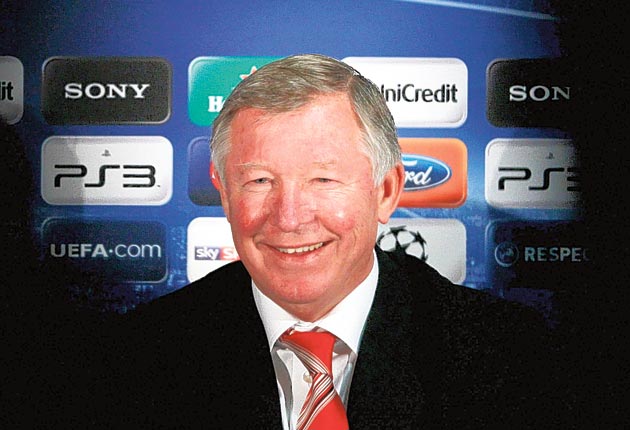Sir Alex Ferguson: Manager, racehorse owner – dot.com millionaire

The culinary ambitions of Sir Alex Ferguson were forced on to the back-burner after the local council in Paisley turned down his planning application to open a restaurant. Instead, the forthright Scot, who had trained as a chef, had to settle for greatness as a football manager.
Now, Ferguson's continuing interest in the catering industry will go some way towards compensating for his on-going travails on the pitch, as well as those of his most famous star, Wayne Rooney, after he collected £4m from the sale of his online restaurant booking site Toptable to an American rival.
The Manchester United boss owned 11 per cent of the company after being persuaded to come on board by friend and fellow Scot Karen Hanton, 53, who founded the pioneering company at the height of the dot.com boom in 2000. Another investor was the chef Gary Rhodes, who is due to earn £400,000 from the deal. Ms Hanton will earn £16m from her stake, following the acquisition by San Francisco-based group OpenTable for £35m. After failing to turn a profit for the first five years of operation, the company enjoyed a net income of £750,000 in 2009 and now helps seat nearly three million diners a year.
As well as being a high-profile figurehead for the company, which earns a £2 fee each time one of the 5,000 restaurants in 14 countries is booked, Sir Alex has given Ms Hanton the benefit of his management wisdom. Rather than subjecting her to the notorious "hairdryer treatment", he told her: "Look at all the positions you have to cover – heads of IT, marketing, etc. You have to get excellent people in all of those key positions."
Ms Hanton was inspired by the success of start-up companies such as lastminute.com. Puzzled by the lack of diners at her own eatery, she decided to apply the online booking principles being developed in travel to restaurants. She began operating from her west London home with one member of staff and was greeted by resistance from the industry. Yesterday, the entrepreneur described the sale as a "milestone" in the company's history. "There's always been mutual admiration between the two companies, and we're really excited about the future, working as a combined force," she said.
Risky business: Sports stars who invested well – and those who didn't
George Foreman
Having come off second best in the "Rumble in the Jungle" to Muhammad Ali, and punched his way out of retirement twice, the heavyweight and born-again Christian eventually traded boxing for a $137.5m (£90m) deal to lend his image and endorsement rights to a range of health-conscious grilling machines.
Michael Owen
Having used his football fortune to build up a former dairy farm into the state-of-the-art Manor House Stables in Cheshire, the Manchester United striker is widely thought to be considering a career in horse racing once he retires from the game. So far, he has persuaded eight Old Trafford stars to sign up as owners (though not boss Sir Alex Ferguson). In the summer he enjoyed two winners on a single day at his local course, Uttoxeter.
Tracy Edwards
Having earned an MBE for skippering Britain's first all-female round-the-world crew in the 1990 Whitbread race, Tracy Edwards became one of Britain's best-known sportswomen. After her deal with Qatar Sports International collapsed in 2005, her company, Quest, which was attempting to promote yacht racing in the Gulf, was wound up in the High Court leaving the sailor with debts of £8m. She now devotes her time to charity.
Raghib Ismail
Ismail was a star of the American college football scene in the late 1980s, and earned between $18m and $20m during his 12-year career. But his prowess on the field was not matched by his investment acumen – he squandered a fortune on schemes including a failed restaurant, an "inspirational" religious film, a cosmetics procedure that purported to absorb oxygen into the skin, and a series of shops that sold framed proverbs written in calligraphy. Of the latter, he said: "The main store opened up in New Orleans, but doggone Hurricane Katrina came two months later."
Join our commenting forum
Join thought-provoking conversations, follow other Independent readers and see their replies
Comments